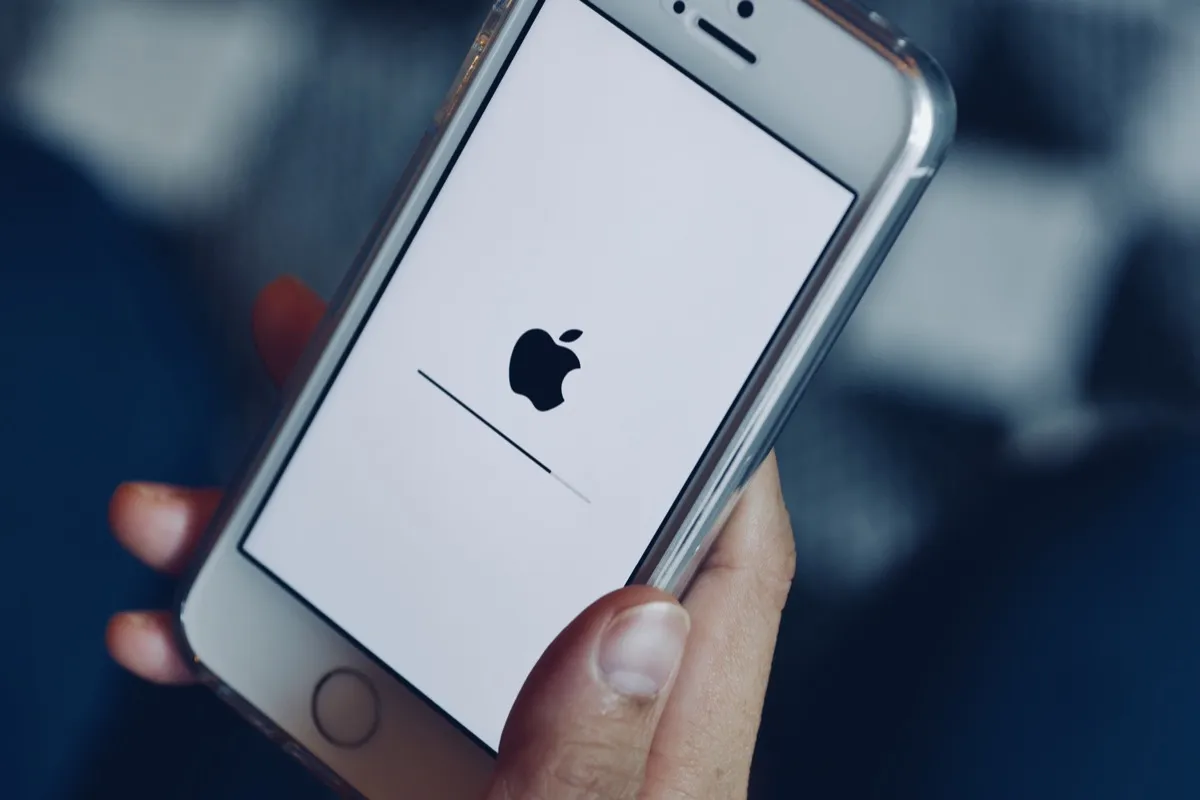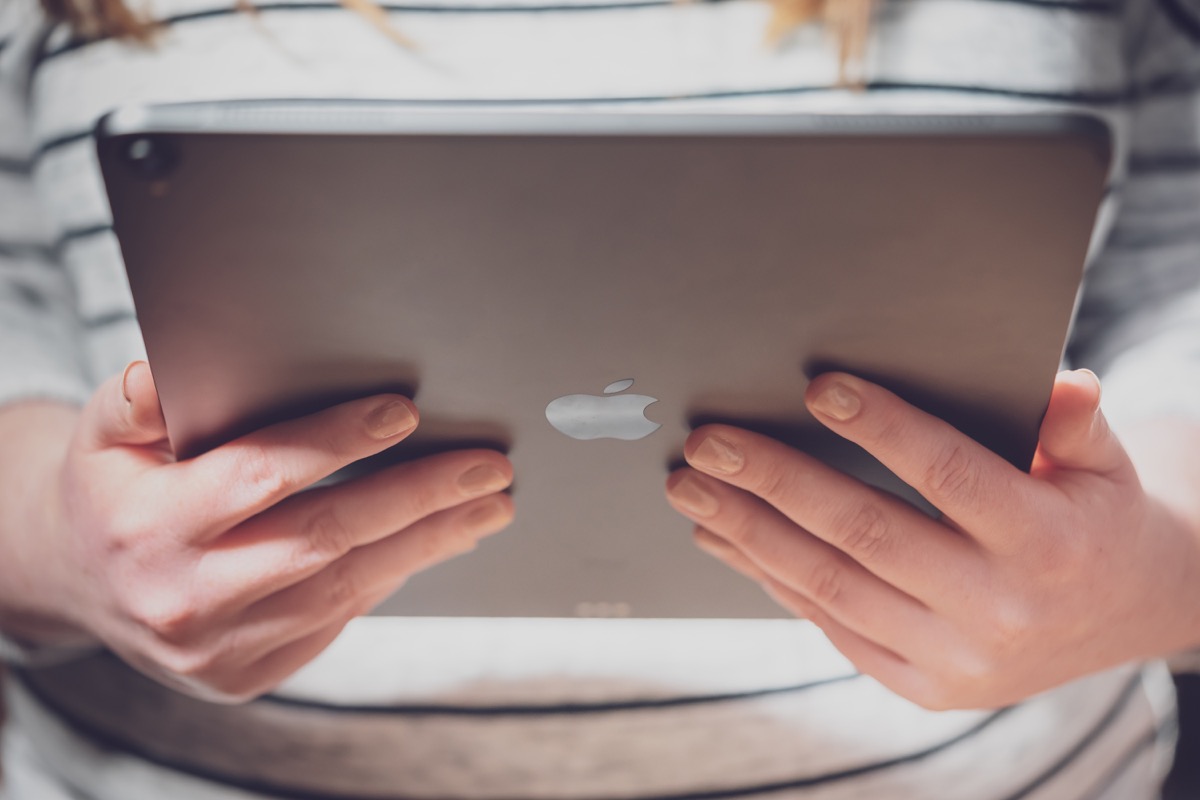Apple Just Issued This Major Warning for All iPhone and iPad Users
An update from the company reveals you may need to do more to protect your devices.
Whether it's a brand new model purchased last week or a years-old device barely clinging to life, the iPhone or iPad you currently own is constantly changing thanks to regular software updates released by Apple. And while these may not fix your cracked screen or improve your phone's battery life, it does allow developers to add new features and patch up any security issues. But according to an Apple executive, there's something you may want to get in the habit of doing for your devices if you want to keep them safe. Read on to see what warning the tech giant has for iPhone and iPad users.
RELATED: Apple Is Banning iPhone Users From Doing This, Effective Immediately.
One iPhone owner noticed that important updates weren't downloading to his device for weeks after release.

For most people, iOS updates on Apple products are something that happens while you sleep and go completely unnoticed. Of course, most updates don't add much in the way of significant upgrades or make any changes to the way your phone works. But these nocturnal downloads also provide important fixes to any bugs in your device that could leave it vulnerable to a number of constantly evolving security threats.
However, even these regular updates are typically taken care of automatically, one user noticed that weeks would sometimes go by before his device would download the latest patch. "I wrote an email to Craig Federighi, who is the senior vice president of software engineering at Apple, to ask him about [for an] explanation [of] how does exactly iOS auto-update feature actually works," Reddit user Mateusz Buda wrote in a recent post. "I was inspired to ask him after reading some Reddit posts and news online about customers complaining that [the] iOS auto-update feature [was] working slow (sometimes even [a] whole month after iOS update release they receive a notification) or not working at all (in my case included)."
An Apple executive warned auto-updates could delay new software downloads by up to a month.

Not long after he sent his email, Buda received a reply from the senior executive that explained how the tech giant approaches each new software release. "We incrementally rollout new iOS updates by first making them available for those that explicitly seek them out in Settings, and then 1-4 weeks later (after we've received feedback on the update) ramp up to rolling out devices with auto-update enabled," Federighi explained.
For some, the response came across as a stark warning that iPhone and iPad users could be left vulnerable to specific security threats for up to a month. According to Forbes, Apple differs from its competitor Android by not separating feature updates from essential security patches that the company can prioritize.
RELATED: For more up-to-date information, sign up for our daily newsletter.
Experts explain that the delay allows for any bugs to get resolved first and stop Apple's servers from crashing.

Still, some explain that Apple holding off on pushing downloads serves an essential purpose. By gradually rolling out the update to users, the company can spot any other bugs before any major issues can become widespread, Engadget reports. This relatively common tactic allows the company to avoid iPhones or iPads from becoming unusable due to an unseen glitch. And by spreading out the volume of downloads, the tech giant can also avoid placing a significant strain on its servers that could cause them to crash.
Here's how you can manually start an iOS update on your iPhone or iPad.

Fortunately, those concerned about keeping their devices secure still have an option to manually download the software as soon as it becomes available. To make sure your iPhone or iPad is up to date, tap Settings > General > Software Update and check for any available downloads. While this means taking matters into your own hands, it can help make up for the lag in essential patches or fixes, Forbes reports.
RELATED: If You're Charging Your iPhone Like This, Apple Says Stop Immediately.






















